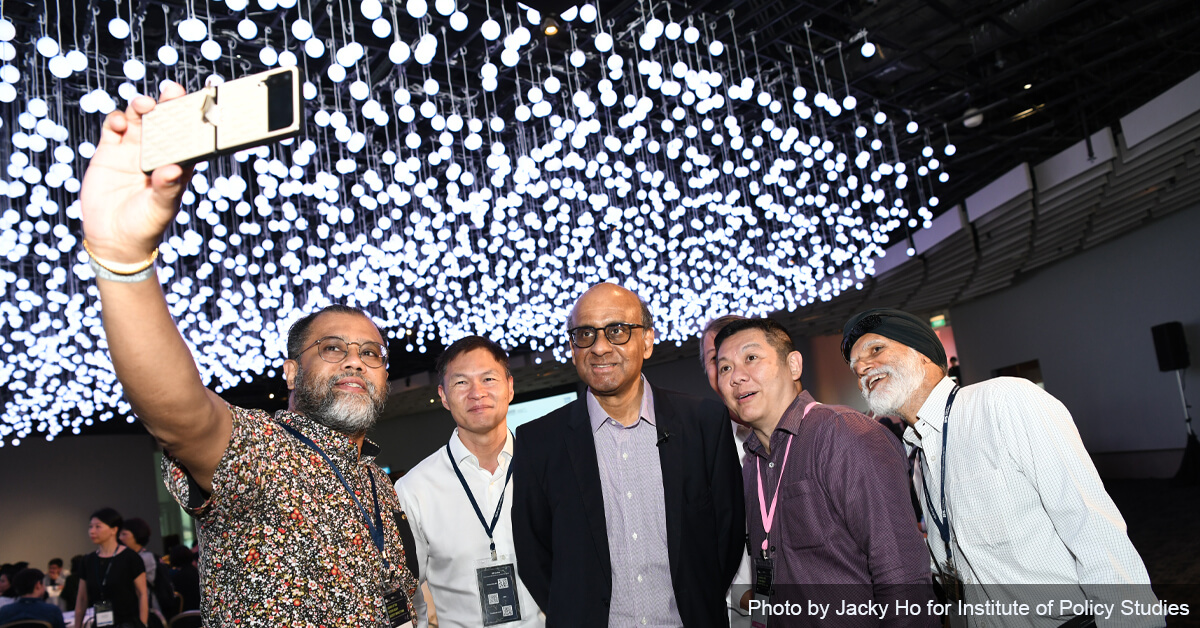
On Friday (Sep 1), citizens delivered a resounding approval to Tharman Shanmugaratnam to be Singapore’s ninth president, giving him 70.4 per cent of the votes.
When the former Deputy Prime Minister and Senior Minister declared in June his intention to run for the presidency, it seemed difficult to imagine anyone would wish to stand against him.
By Polling Day, however, it felt similarly difficult to be quite so confident that Mr Tharman would receive a thumping victory if one judged by the campaign, public discourse, and social media.
Credit must go to former GIC chief investment officer Ng Kok Song and former NTUC Income CEO Tan Kin Lian for performing the supreme public duty of offering themselves as candidates and presenting citizens with real choice.
Suggestions were going around that the margins would be tight - if Mr Tan was going to draw on an anti-establishment crowd to support him which could be something to the order of 30 per cent if not even 40 per cent of the votes, Mr Tharman would struggle to draw half of the 2.5 million votes in play and Mr Ng, the residual.
To what extent could this landslide victory be attributed to the “Tharman effect”?
THE “THARMAN EFFECT” IN A LANDSLIDE VICTORY
Mr Tharman is recognised as someone with international standing – we were reminded of his orientation to social support by replays of his “trampoline” comments at the St Gallen Symposium of 2015.
He is associated with past efforts in government to design social support to help people bounce back from adversity rather than just to catch them with a safety net. He is also known to have made warm connections with the ground with his deep commitment to social inclusion.
We witnessed supporters and ordinary citizens rallying around him, while his group of proposer, seconder and assenters read like a who’s who in a range of pursuits in civil society - clan associations, trade union movement, sustainability, humanitarian work, and even the public intellectual, Ho Kwon Ping.
However, it was not plain sailing for Mr Tharman. Arguably, the sharpest point of contention was whether he had enough “independence” to be a check on the government’s plans to use the reserves and make appointments to key positions in the public sector.
Mr Ng went so far as to say that the exercise of the president’s custodial power over the reserves should not be left in the hands of a former Finance Minister, as that would be akin to an “ownself check ownself system”, borrowing a phrase coined by the leading opposition Workers’ Party; it would be “very difficult for someone who set up the system to question the system”.
Mr Tharman provided a two-part response - first that the past presidents who had been associated closely with the government were no less able to establish that they had their own mind; second, that it boils down to the precise and specific character of the candidate himself or herself, not simple labels and assumed identities.
He turned the argument around to say that no one could therefore fool him when it came to understanding the system and exercising the key custodial powers of the President. It will be important for the authority of the institution to set out how that will indeed be the case in Mr Tharman’s six-year term in the Istana.
IMPLICATIONS ON FUTURE ELECTIONS?
Of course it is not lost on anyone that Mr Tharman is now the first non-Chinese presidential candidate to win an open, contested and direct election.
This choice of an Indian leader with his Singaporean wife of Japanese-Chinese heritage has confirmed the notion that it is egalitarianism, multiracialism and meritocracy that he campaigned on and has lived by, which citizens value.
In his post-election comments, he said he hoped that his election is seen as another milestone in the evolution of our nation, repeating that “race is never absent, but it is not the only factor”.
It must have been clear that people recognised his personal qualities, his values and long public service record. Also, that in how he campaigned, he walked the talk of his slogan - “Respect for All” - and engaged Mr Ng and Mr Tan squarely but with gentlemanly decorum.
It will be interesting to see how many more years it will be before citizens, and even, Singapore’s governing People’s Action Party, make another breakthrough in multiracial meritocracy - that of supporting the emergence of a non-Chinese prime minister. This must of course only be because his or her competence, experience, and heart for the well-being of the people are incontrovertible and actively mobilised for the greater good.
President-elect Mr Tharman can do much to inspire such people to arise in leadership across the country. In the meantime, what the government has lost in a politician and policymaker, Singapore has gained even more through him.
His victory is a “vote of confidence” in Singapore and a “vote of optimism in how we can progress together and support each other as Singaporeans”, he said.
To help us navigate a world that is questioning the old orthodoxies of geopolitics and economics, Mr Tharman will have to bring his best to the role in the next six years - to nourish the soul of our nation and remind us that we must always dare to be different.
Gillian Koh is Senior Research Fellow at the Institute of Policy Studies, National University of Singapore.
This piece was first published in CNA on 2 September 2023.